China is actively building artificial islands in the South China Sea, turning them into military and logistical bases. Beijing already has at least seven such bases, equipped with access channels, helipads, radar facilities, gun and missile emplacements, piers, military facilities and other objects of strategic importance.
China’s government had started its land reclamation and construction efforts on the reefs in early 2014. The main reason for such actions by China, is the US intention of controlling international trade in the Indian Ocean and the Pacific or even monopoly of trade control in those waters. The US strategists are concerned about the rise of Chinese naval forces and Chinese expansion in the Pacific Ocean. Particularly, they aimed to prevent a situation where China will be able to defend particular zones of sea communications from foreign intervention. The U.S. strategic purpose is to seal off the PLA Navy in the South China Sea and in limiting its operational freedom of movement and allow for the encirclement of China by land.
Building up the reefs in the South China Sea, China pursues multiple objectives, including ensuring the safety of expanding shipping lanes, extending maritime protection to its regional waters, and developing capabilities to conduct non-conventional security operations outside the region. The PLA Navy has sufficient self-defense capabilities, but deficiency in cross-region operations and force projection is evident, thought Beijing is trying to change that.
You will find a detailed review of the Chinese artifical islands in the South China Sea below.
This video was originally released by SouthFront in July 2015:
China’s man-made islands in the South China Sea
Cuarteron Reef is located in the London Reefs, on the Western side of the Spratly Islands. The area of the island built on the reef is 231,100 square meters. China began to build it up in the summer of 2014 and has since built an artificial island and is also building structures on the island. Currently, Cuarteron Reef is equipped with 125 meters wide access channel, breakwaters, multiple support buildings, three concrete plants, two helipads and reinforced seawalls. Drawing attention to the images, we can also assume that the reef also has five possible communication antennas, a radar facility, two radar towers under construction, five gun or missile emplacements, a preexisting large multi-level military facility, and a satellite communication antenna.
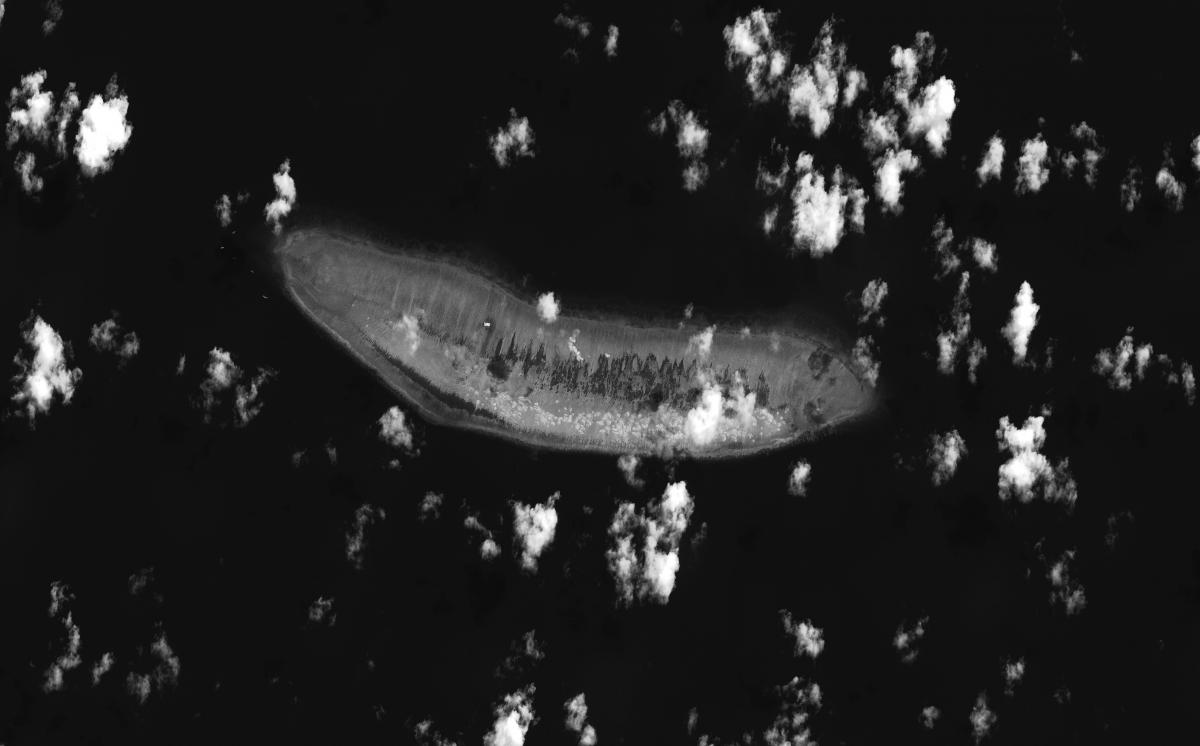
Cuarteron Reef on March 20, 2013. Photo: Asia Maritime Transparency Initiative and Digital Globe
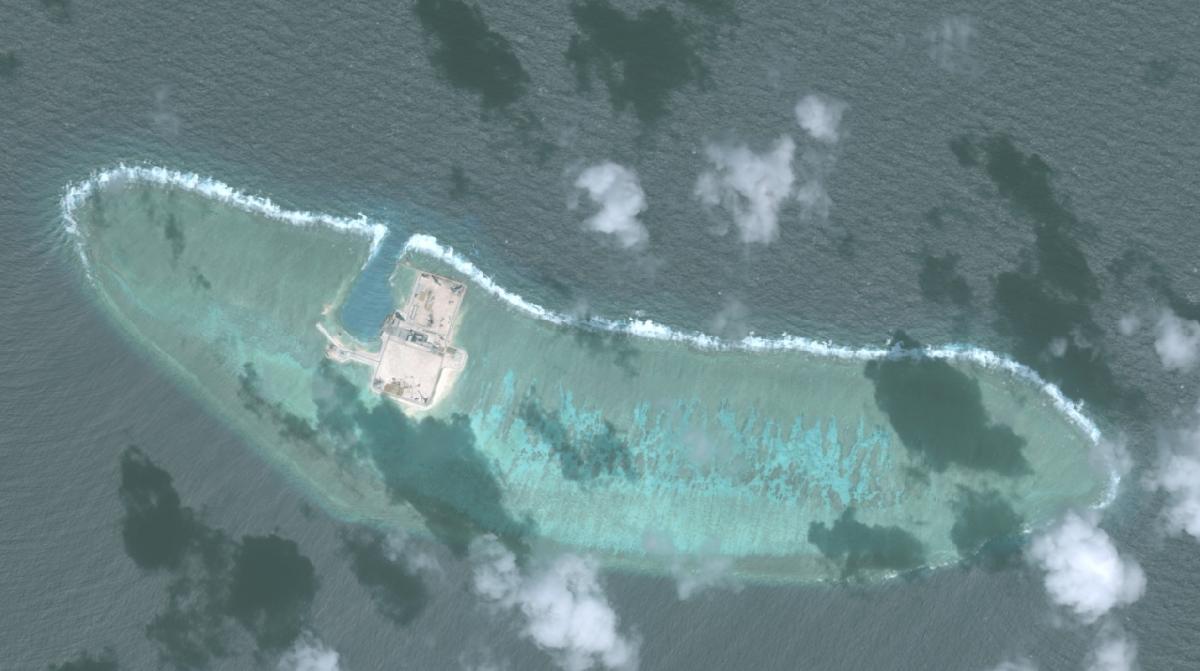
Cuarteron Reef, January, 2016. Photo: Asia Maritime Transparency Initiative and Digital Globe
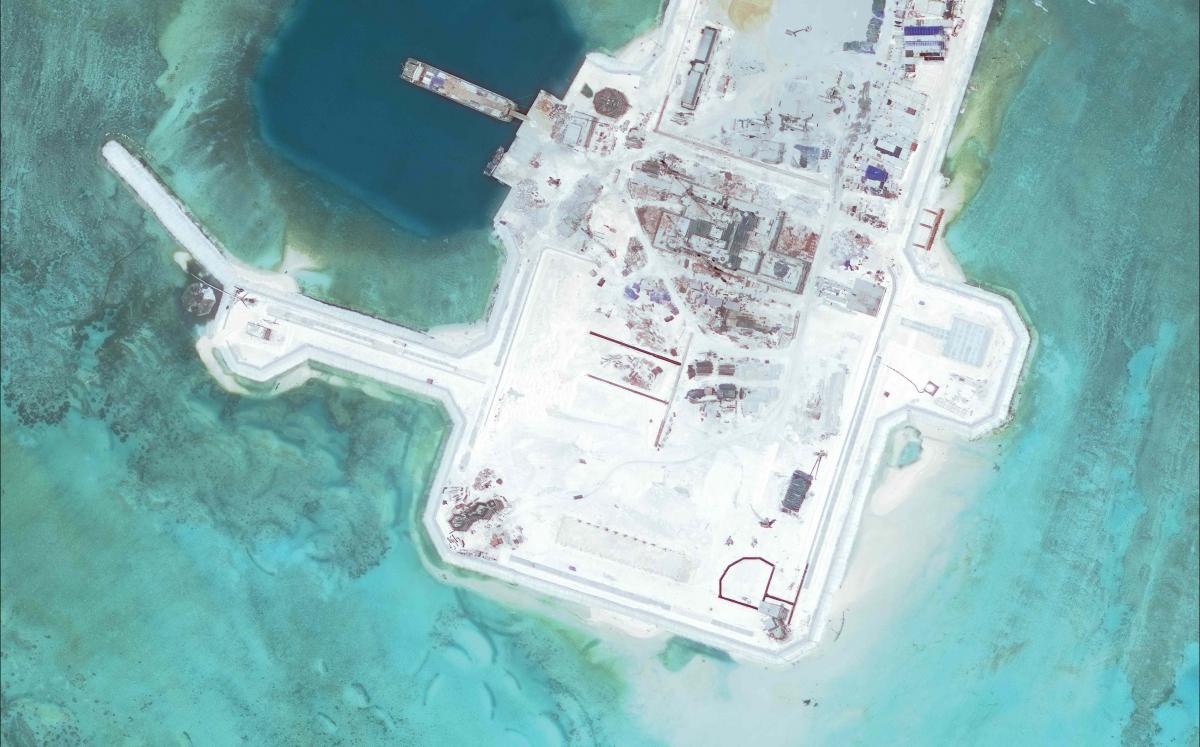
Cuarteron Reef, March 2016. Photo: Asia Maritime Transparency Initiative and Digital Globe
Fiery Cross Reef is situated on the west side of the Spratly Islands. The area of the island built on the reef is 2,740,000 square meters. Reclamation on Fiery Cross Reef began in August 2014. The landmass spans the entire existing reef and is approximately 3,000 meters long and 200-300 meters wide. China is currently building an airstrip with an estimated final length of 3,110 meters and has also begun development of port facilities. Currently, Fiery Cross Reef is equipped with an airstrip (under construction), a harbor large enough to receive tankers and major surface combatants (630,000 square meters), multiple cement plants, multiple support buildings, nine temporary loading piers and one preexisting pier, preexisting air-defense guns, a possible radar tower under construction, eight possible gun emplacements, preexisting anti-frogmen defenses, preexisting communications equipment, a preexisting greenhouse, two helipads, a preexisting military facility, a preexisting pier, a new multi-level administrative facility adjacent to airstrip, two lighthouses, and ten possible satellite communication antennas.
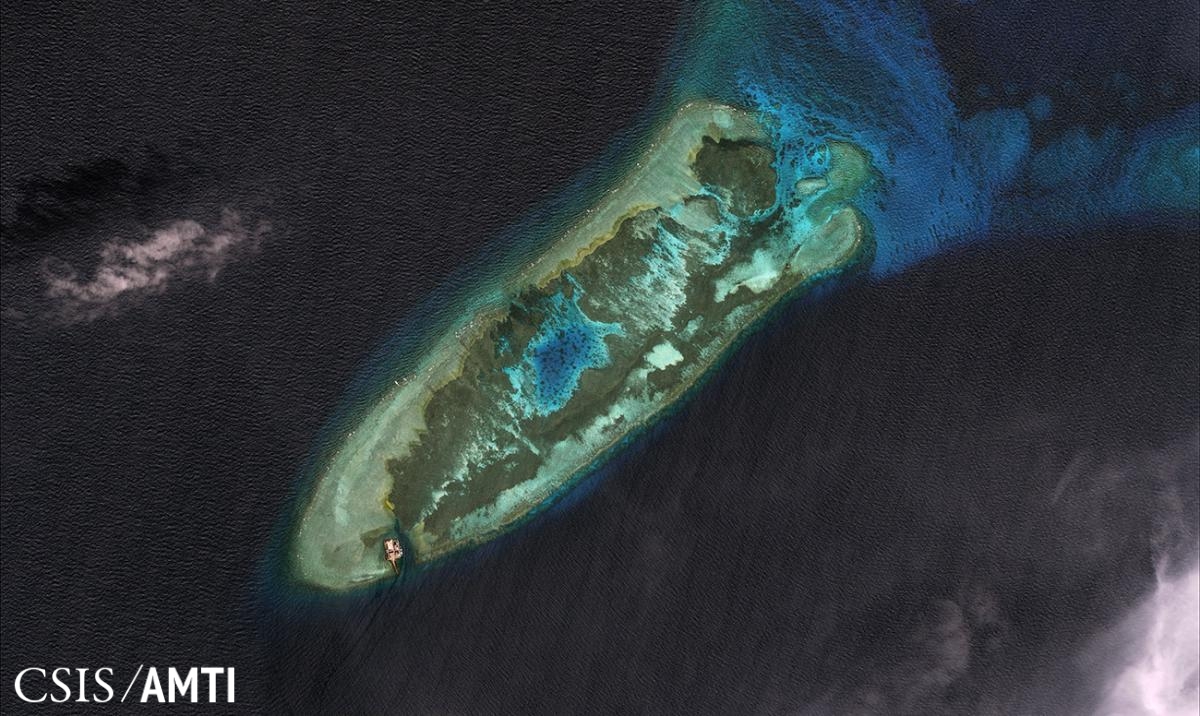
Fiery Cross Reef in January, 2006. Photo: Asia Maritime Transparency Initiative and Digital Globe
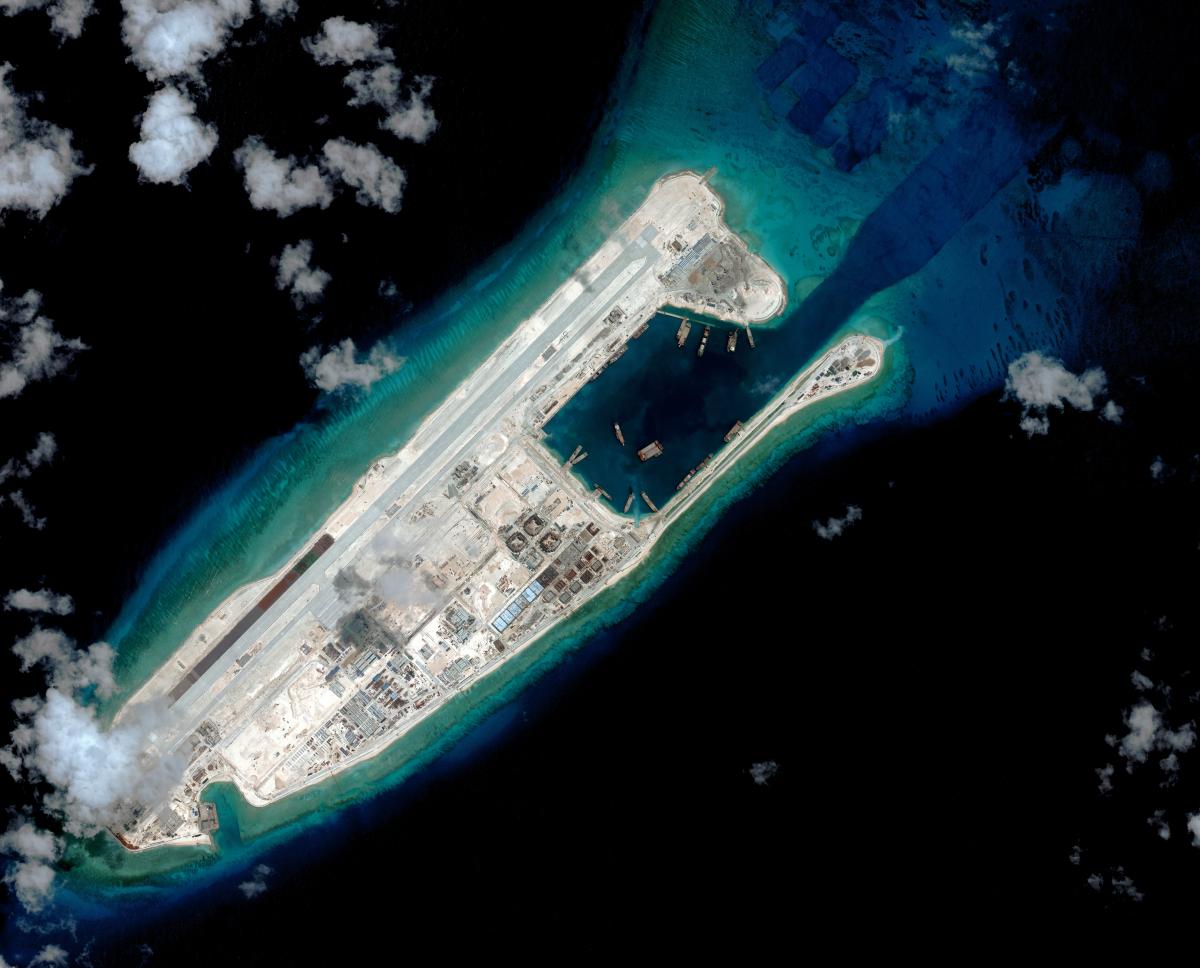
Fiery Cross Reef on September 3, 2015. Photo: Asia Maritime Transparency Initiative and Digital Globe
Gaven Reef is located in the Tizard Banks, near the center of the Spratly islands. The area of the island built on the reef is 136,000 square meters. Chinese construction at Gaven Reef in the Tizard Banks began sometime after March 30, 2014. The new, rectangular, artificial island is approximately 300 meters by 250 meters. Images show that a causeway now links the new island with a small facility that had long stood on the reef. Currently, Gaven Reef is equipped with an access channel 122 meters wide, a port area 66,402 square meters, anti-air guns, a possible large radio communication antenna (under construction), a construction support structure, eight possible gun emplacements, naval guns, a new military facility, two helipads, a preexisting military facility, reinforced seawalls, and a cement plant.
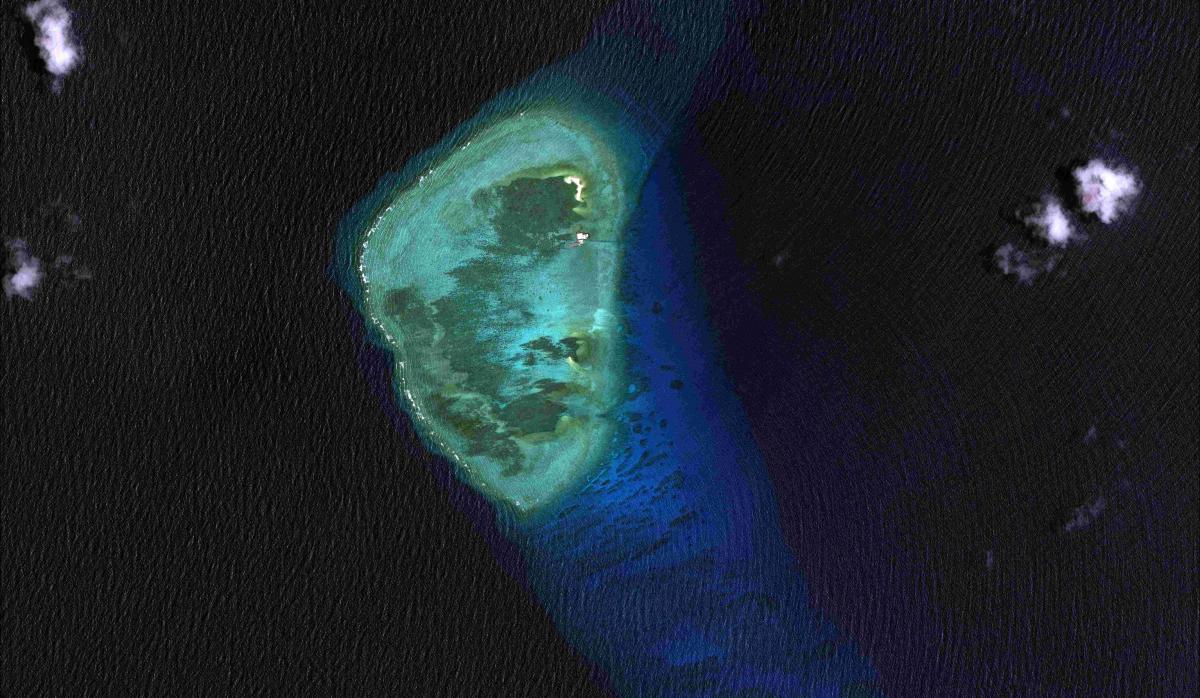
Gaven Reef, September 1, 2007. Photo: Asia Maritime Transparency Initiative and Digital Globe
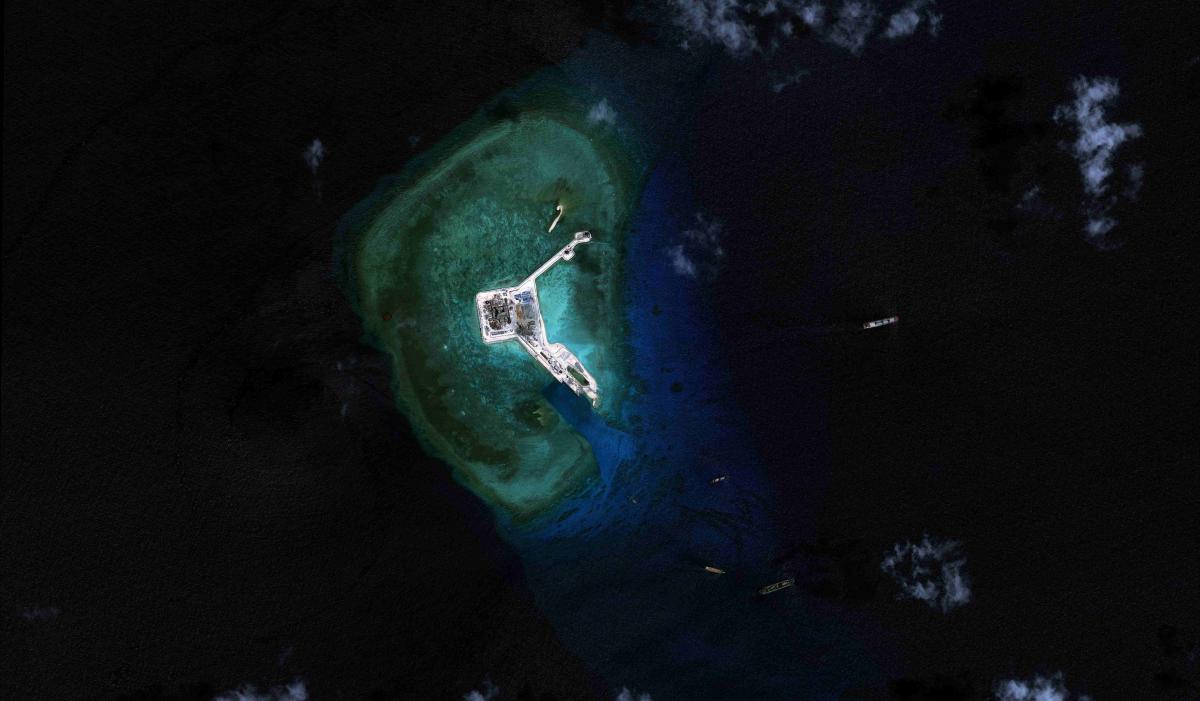
Gaven Reef, March 17, 2015. Photo: Asia Maritime Transparency Initiative and Digital Globe
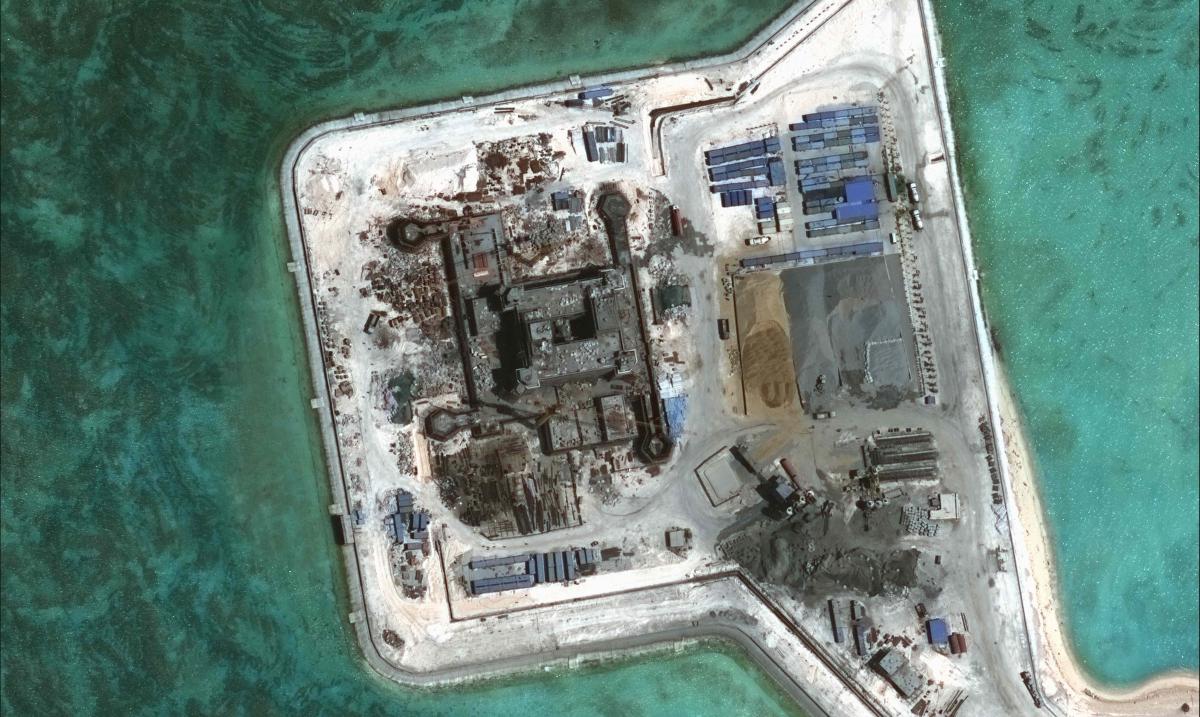
Gaven Reef, March 17, 2015. Photo: Asia Maritime Transparency Initiative and Digital Globe
Hughes Reef is situated in the Union Banks, located in the northern Spratly Islands. The area of the island built on the reef is 76,000 square meters. Reclamation and building efforts on Hughes Reef appear to have begun in Summer 2014. There was significant development on the right side of the island between November 15 and December 12, 2014. Now the reef has an access channel 118 meters wide, coastal fortifications, four defensive towers, a harbor 292,000 square meters, a port 35,350 square meters, a multi-level military facility, five possible gun emplacements, a possible radar facility (under construction), a preexisting helipad, a preexisting light house, reinforced seawalls, and a cement plant.
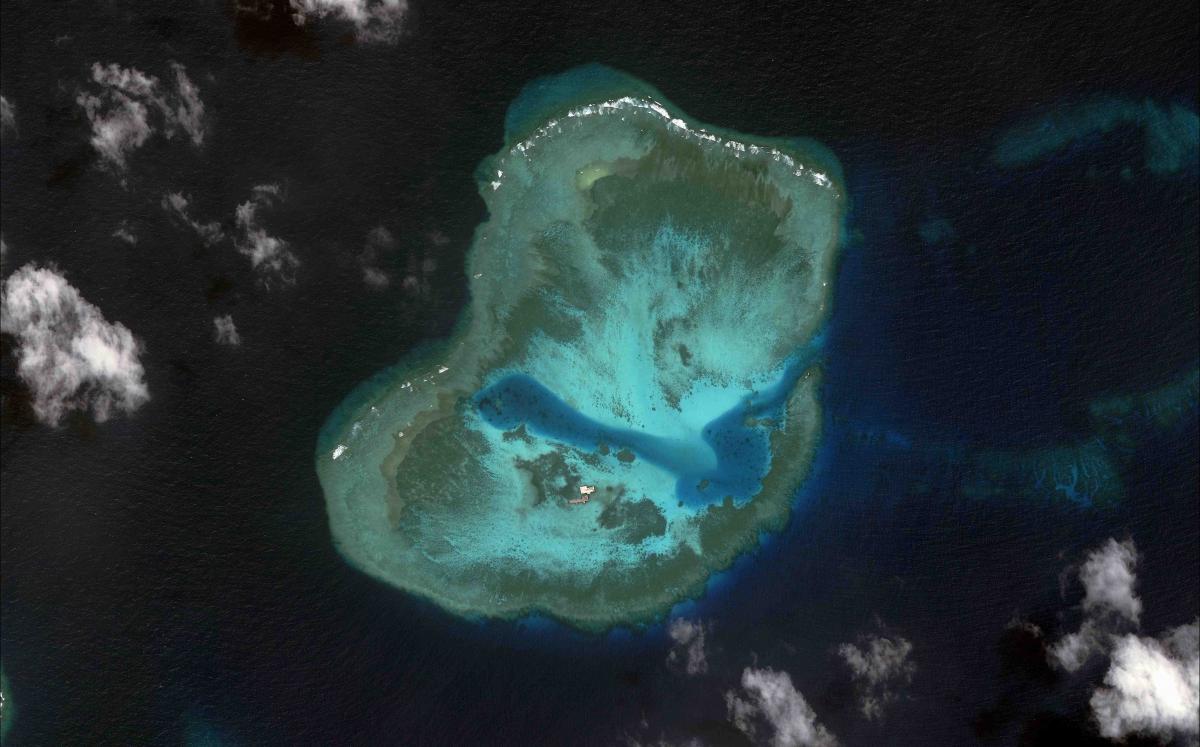
Hughes Reef on March 12, 2008. Photo: Asia Maritime Transparency Initiative and Digital Globe
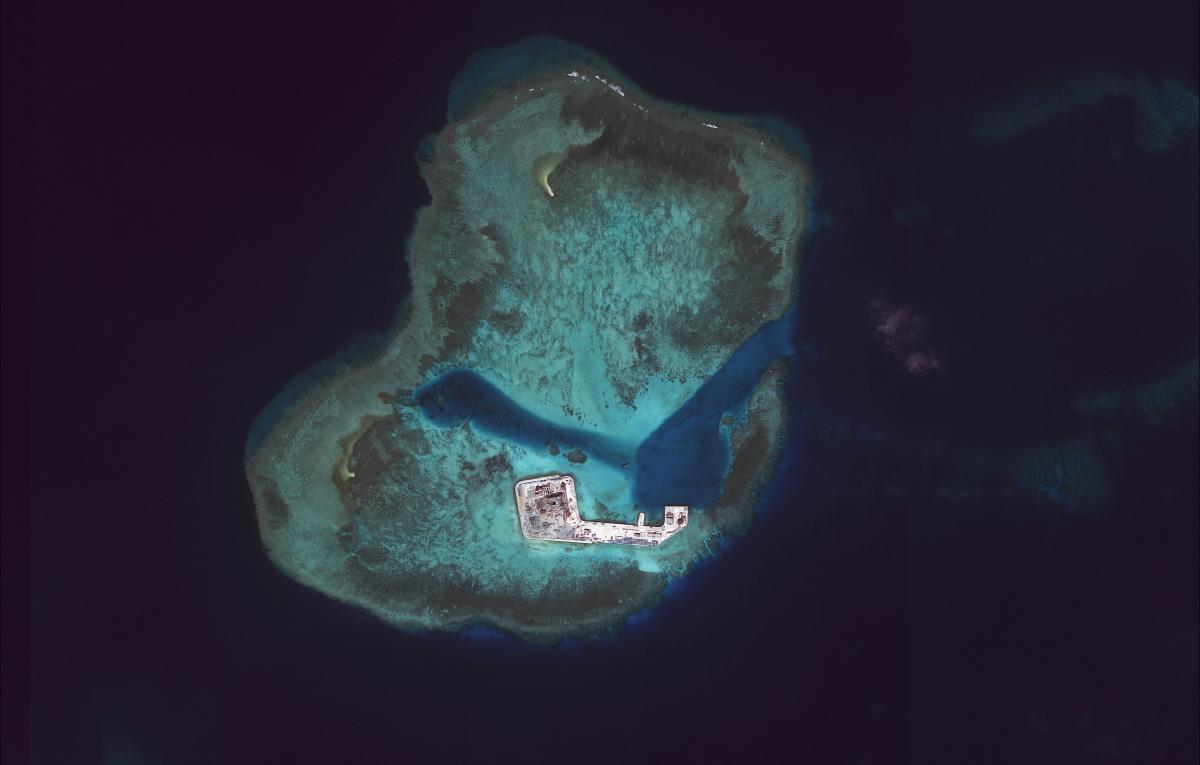
Hughes Reef on March 16, 2015. Photo: Asia Maritime Transparency Initiative and Digital Globe
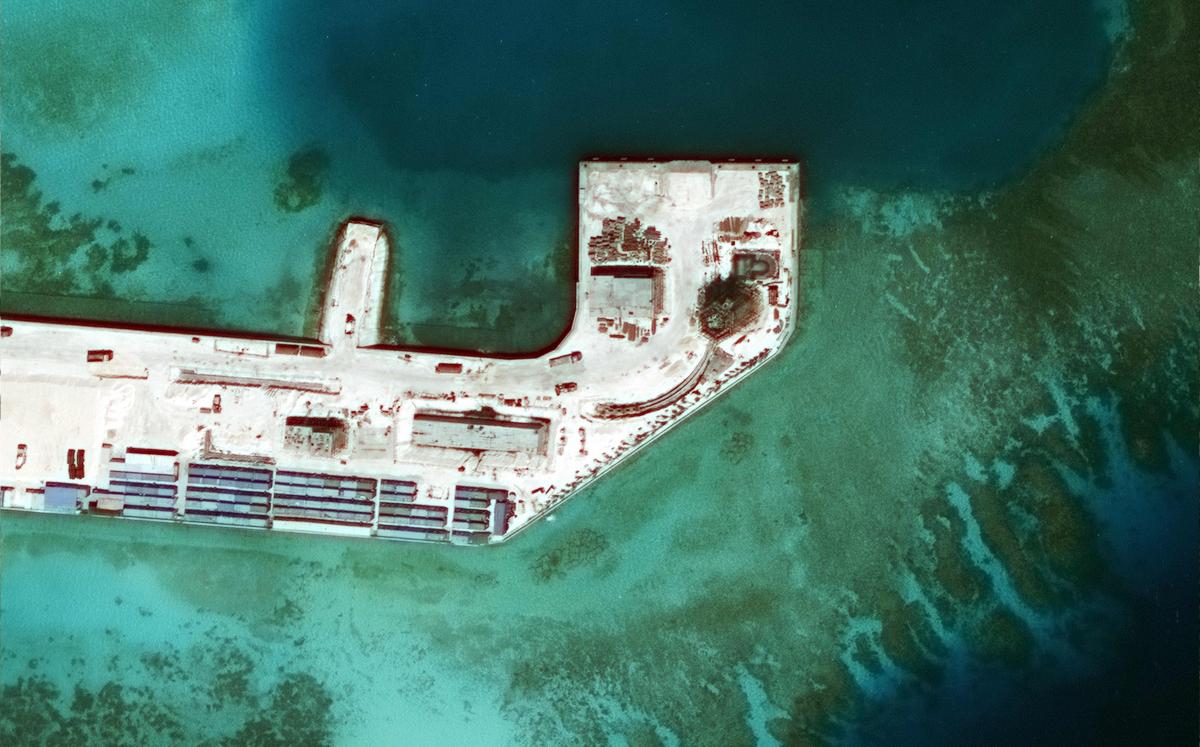
Hughes Reef on March 16, 2015. Photo: Asia Maritime Transparency Initiative and Digital Globe
Johnson South Reef is located in the Northwest of the Spratly Islands at Union Banks. The area of the island built on the reef is 109,000 square meters. Significant progress was made toward the construction of new buildings on Johnson South Reef between November 15 and December 12, 2014. Now we can see there 125 meters wide access channel, a concrete plant, defensive towers, desalination pumps, a fuel dump, a multi-level military facility, a possible radar facility, a small port with limited berth space and two loading stations, 3,000 square meter harbor area, four possible weapons towers, agricultural, a lighthouse, and a possible solar farm (44 panels), a preexisting communications facility, a preexisting garrison building, two helipads, a roll on roll off docks, a preexisting large multi-level military facility, a preexisting pier, reinforced Seawalls, three possible satellite communication antennas, two possible radar tower under construction, and two wind turbines.
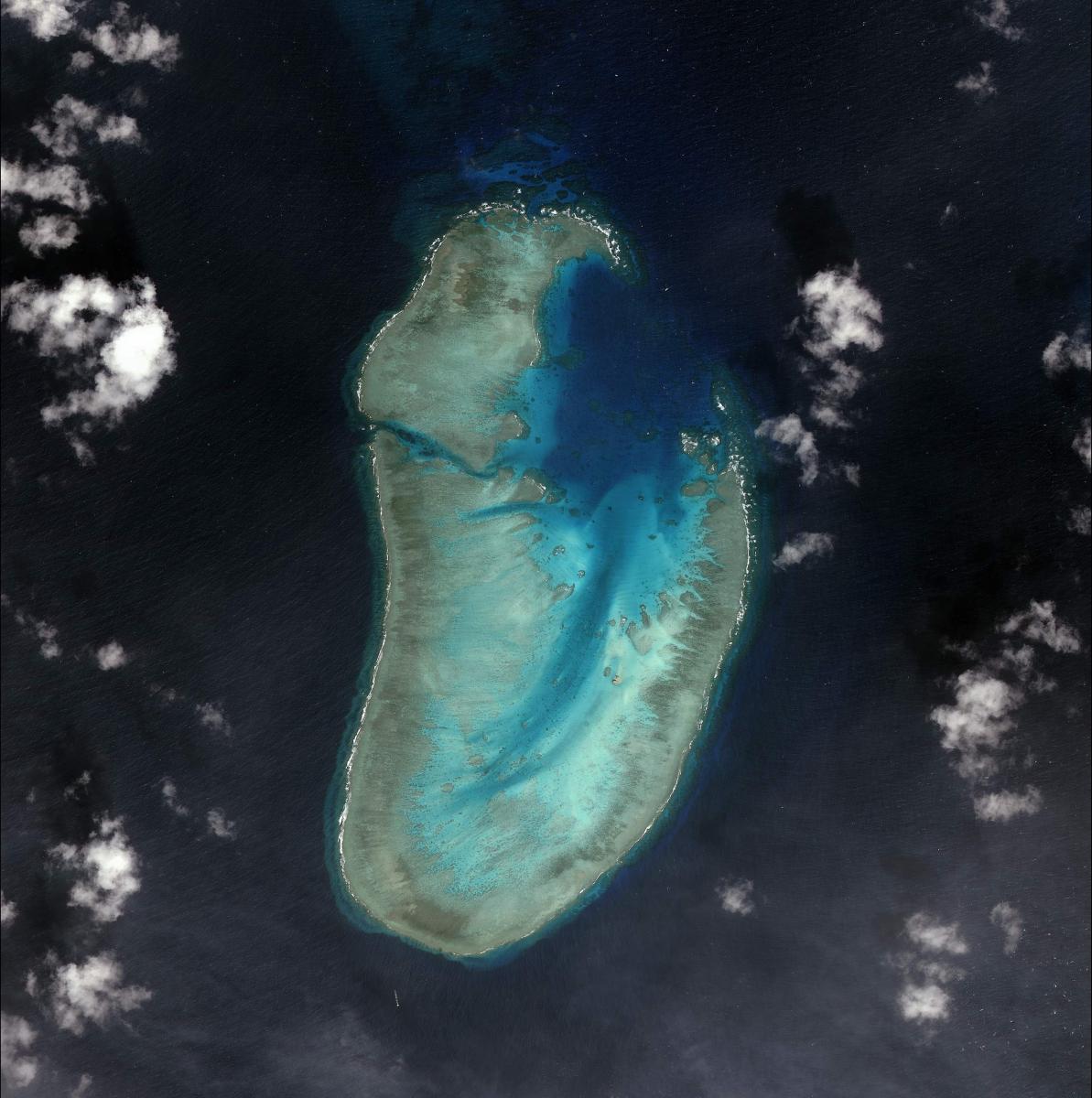
Johnson South Reef on November 29, 2004. Photo: Asia Maritime Transparency Initiative and Digital Globe
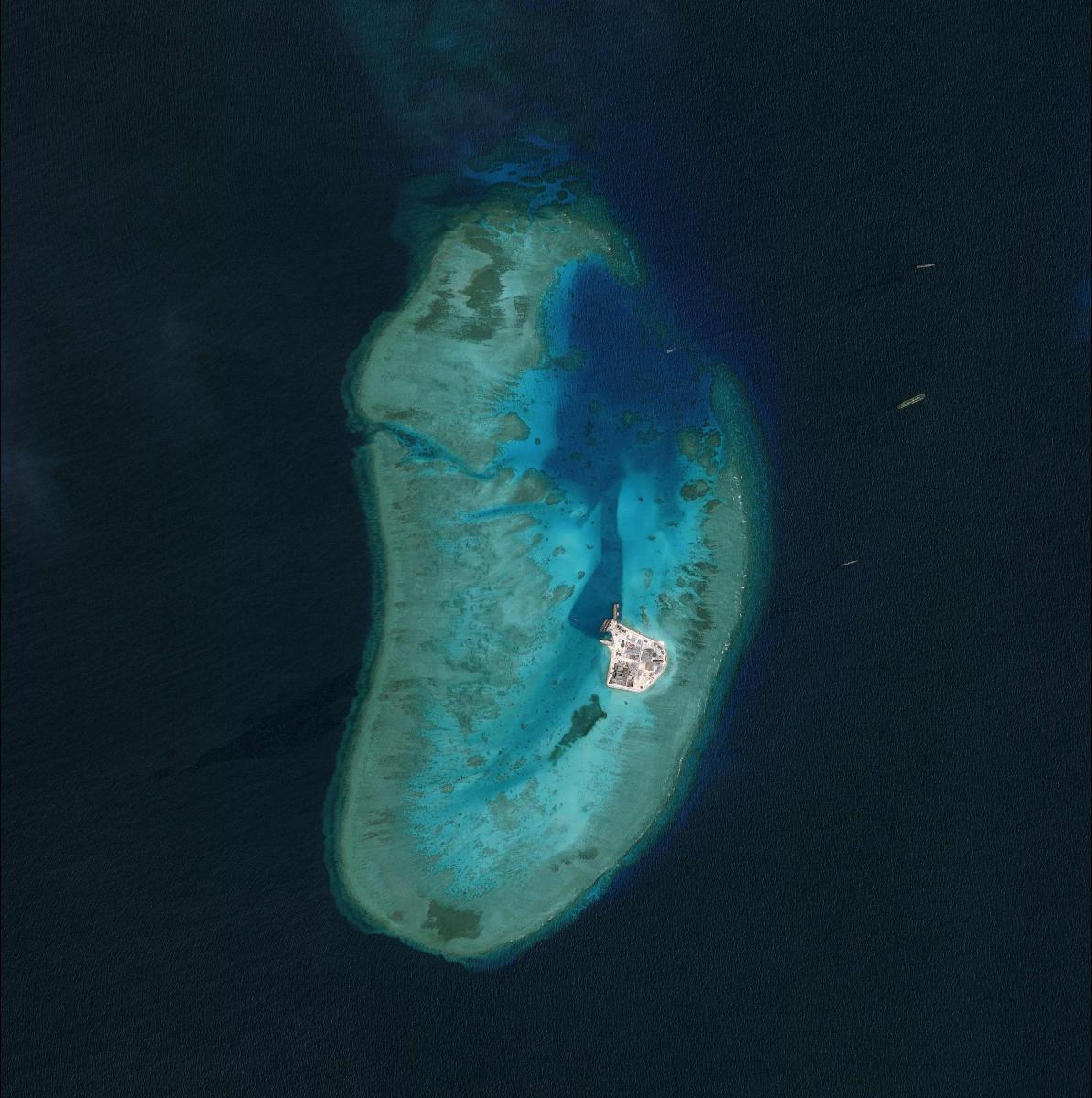
Johnson South Reef on March 4, 2015. Photo: Asia Maritime Transparency Initiative and Digital Globe
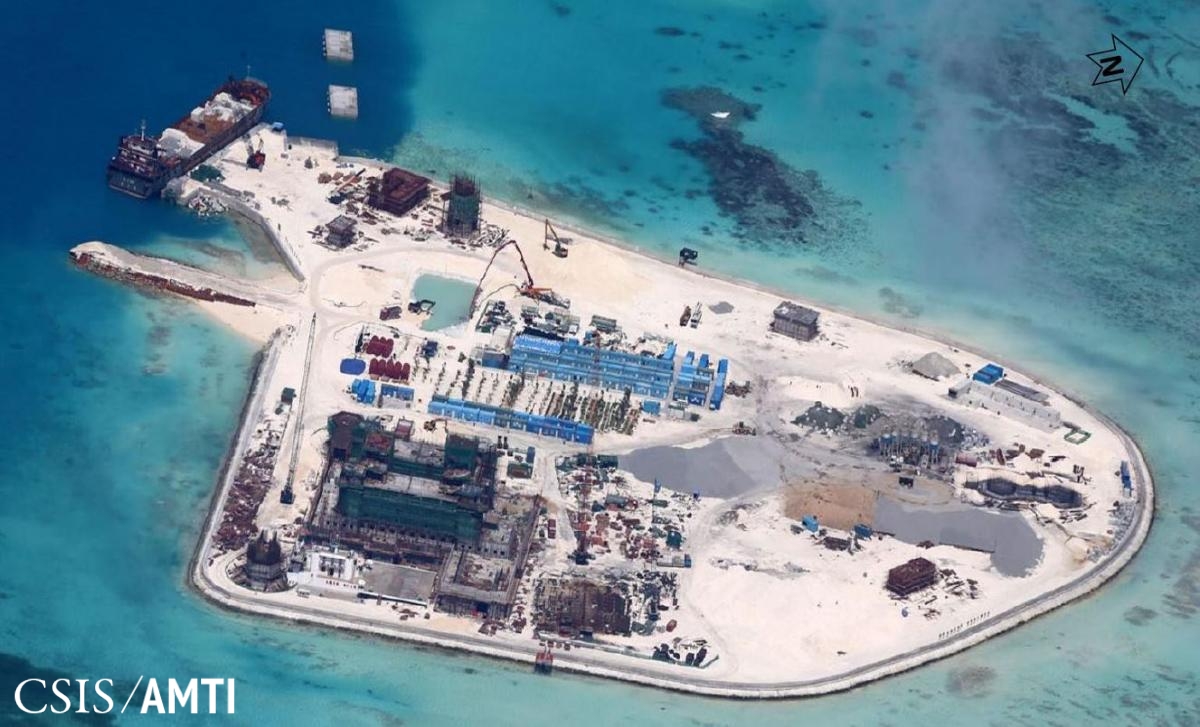
Johnson South Reef on December 12, 2014. Photo: Asia Maritime Transparency Initiative and Digital Globe
Mischief Reef is situated in the Spratly Islands. The area of the island built on the reef is 5,580,000 square meters. The works there started in early 2015. The reef falls within the exclusive economic zone of the Philippines, lying 129 nautical miles from Palawan. Many have speculated that the by widening the entrance to the reef, China intends to create a naval base on the reclaimed reef. Now Mischief Reef is equipped with an access channel, fortified Seawalls, nine temporary loading piers, nine cement plants, two pre-existing military facilities, a preexisting shelter for fishermen, and three possible satellite communication antennas.
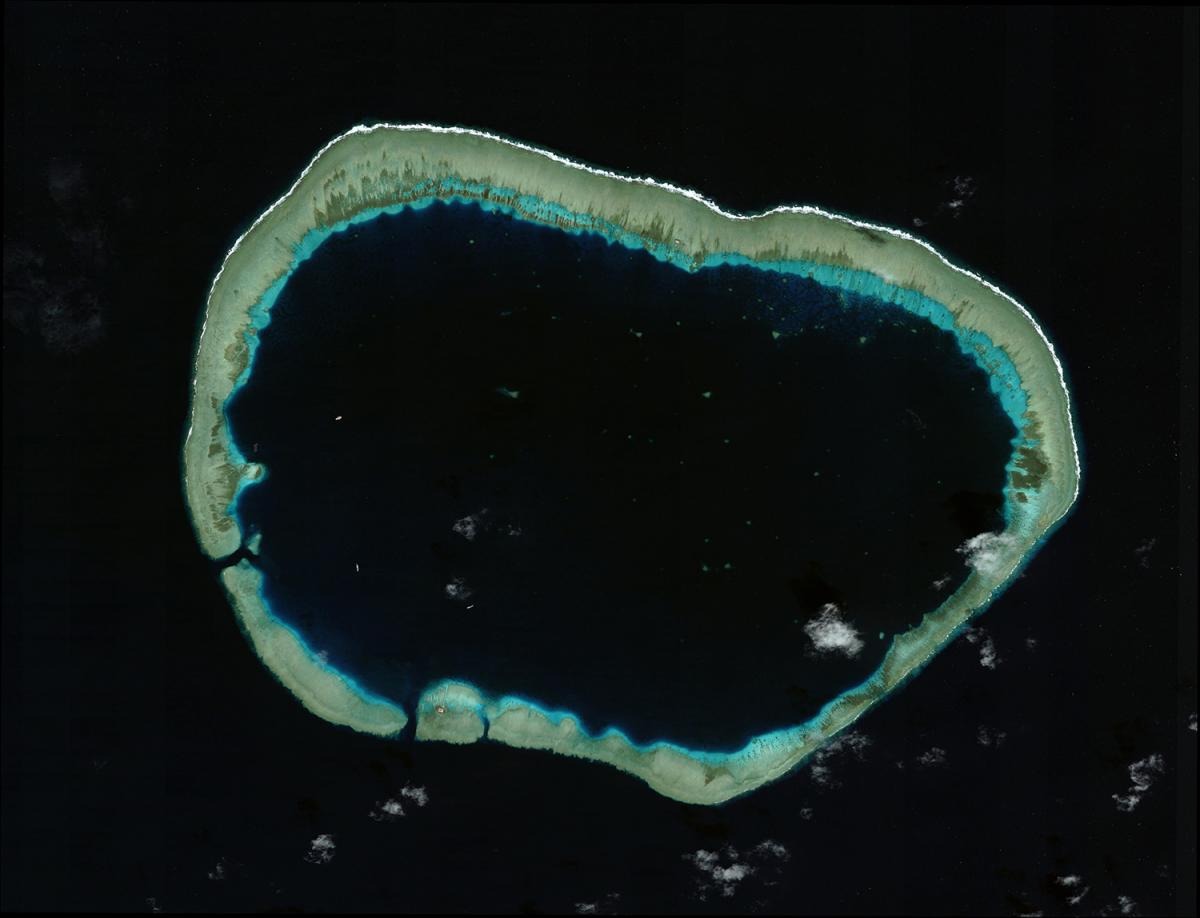
Mischief Reef on January 24, 2012. Photo: Asia Maritime Transparency Initiative and Digital Globe
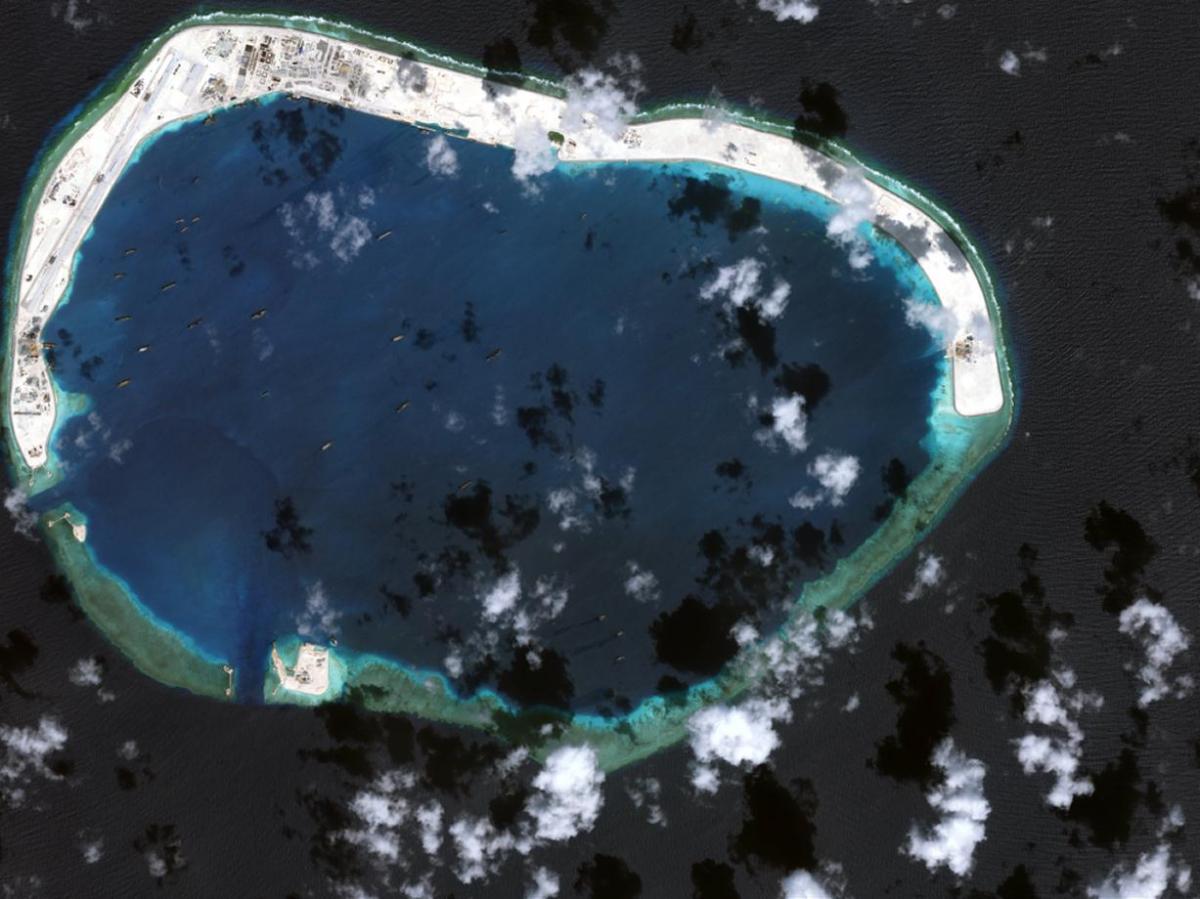
Mischief Reef on January 8, 2016. Photo: Asia Maritime Transparency Initiative and Digital Globe
Subi Reef is located in the Northern Spratly islands. The area of the island built on the reef is 3,950,000 square meters. Subi Reef was occupied by China during its 1988 push to increase its footprint in the South China Sea. The reef is 14 kilometers from the Thitu Reef cluster occupied by the Philippines. China began construction on Subi and Cuateron Reefs in the early 1990s. China began land reclamation on Subi in July 2014. Reports have emerged that up to 200 troops are deployed there. Currently, Subi Reef is equipped with an access channel 230 meters wide, eleven temporary loading piers, a potential 3000m airstrip, a large multi-level facility with existing structure, seven possible satellite communication antennas, a possible security and surveillance tower with radome, reinforced seawalls, a helipad, a preexisting military facility, and three concrete plants.
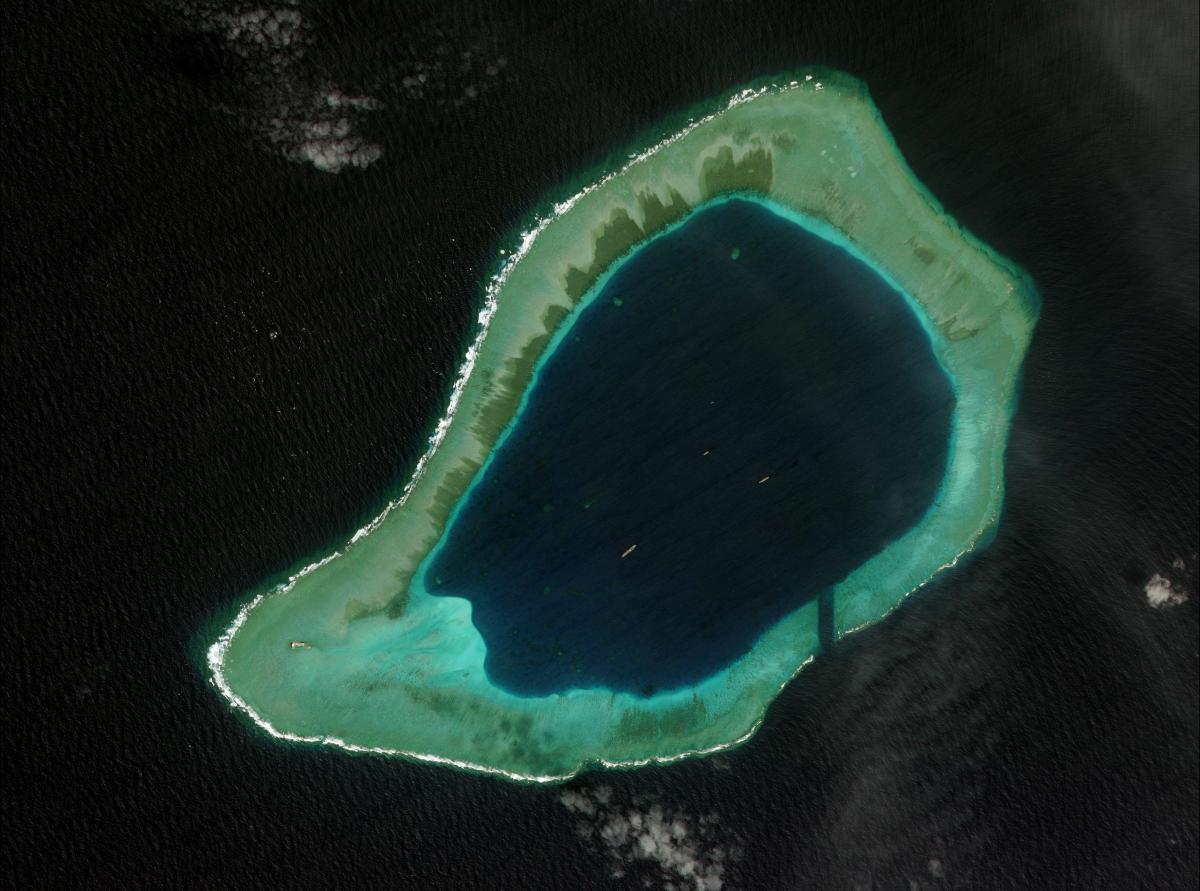
Subi Reef on July 27, 2012. Photo: Asia Maritime Transparency Initiative and Digital Globe
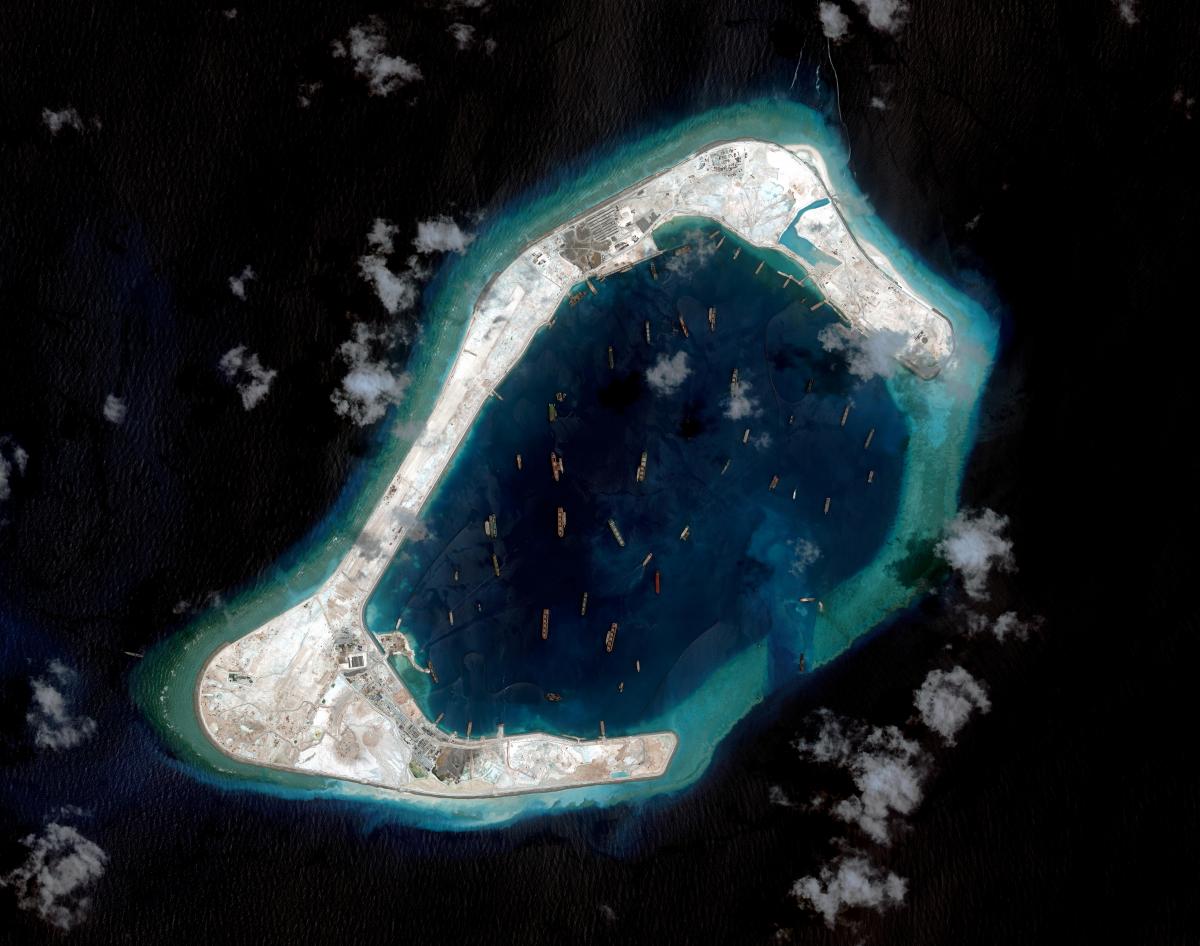
Subi Reef on September 3, 2015. Photo: Asia Maritime Transparency Initiative and Digital Globe
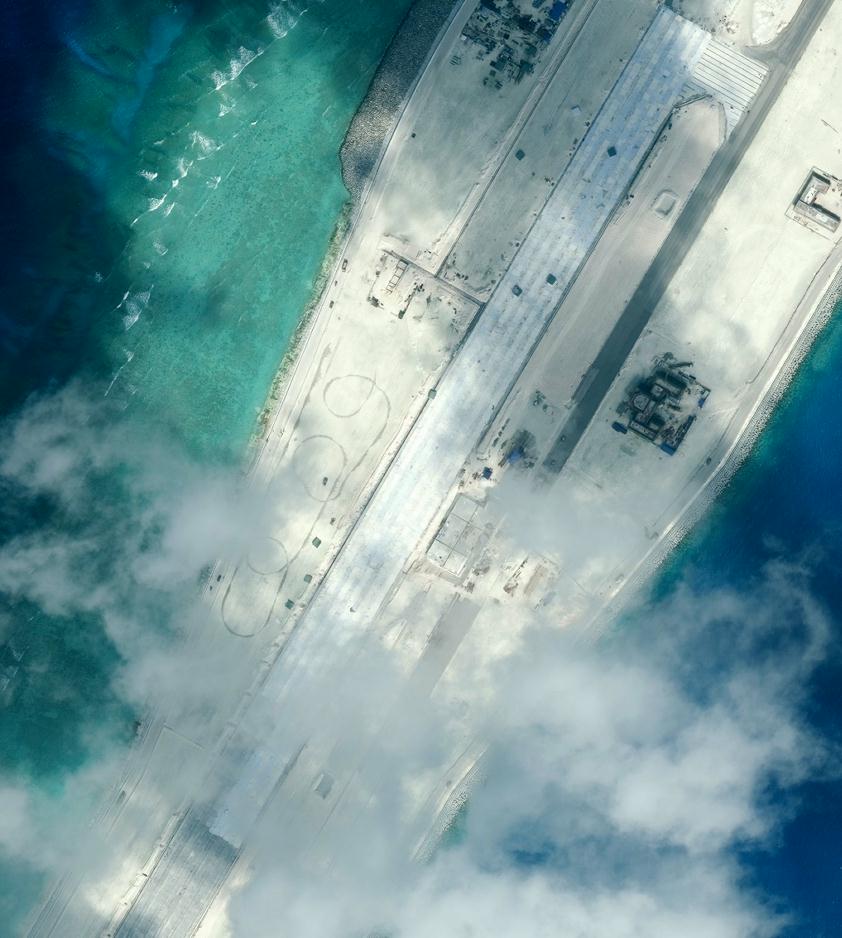
January 8, 2016. Photo: Asia Maritime Transparency Initiative and Digital Globe
The review is grounded on the information released by CSIS/AMTI.
“The main reason for such actions of China is the US intention to control the trade in the Indian Ocean and the Pacific or even monopolize it in those waters”
Really? Do you have any proof? To me this looks like cheap Chinese propaganda. They just try to steal Filipino, Vietnamese and Indonesian islands. That has nothing to do with the US.
http://www.voanews.com/content/clinton_in_pacific_advancing_us_pivot_to_asia/1499787.html
No more lies wimroffel, it is all now in the open for those who care investing 5 minutes to look it up….
http://www.eurasiareview.com/12102011-clinton-americas-pacific-century-oped/
Go China!!!!!!!!!!!!! The world must be free from U.S. Terrorists. You are the hope !!!!!!!!!!!!!!!
And as Terry Pratchett once wrote: ‘And all those exclamation marks, you notice? A sure sign of someone who wears his underpants on his head.’
That’s not very intelligent. First of all environmentally how much damage are they doing building on top of all of these reefs. The only other question I have is although the US has been pretty horrible for a while now you have to be completely ignorant to think that you want the world superpower to be China.
China are the locusts of the world, destroying everything as they go, they are a threat to humanity.. Wake up already
I don’t know if China’s invasion will be good for the nearby countries especially Philippines since China took Mischief Reef from the Philippines. The International Tribunal law says… Philippines granted 200 nautical miles for which the Filipinos do fishing. Now that China took Mischief Reef and Fiery Cross, I’m not sure if China is (which I believe so) is only looking after itself. Thus, rejecting Philippines in its ally with the US may not be a good idea.